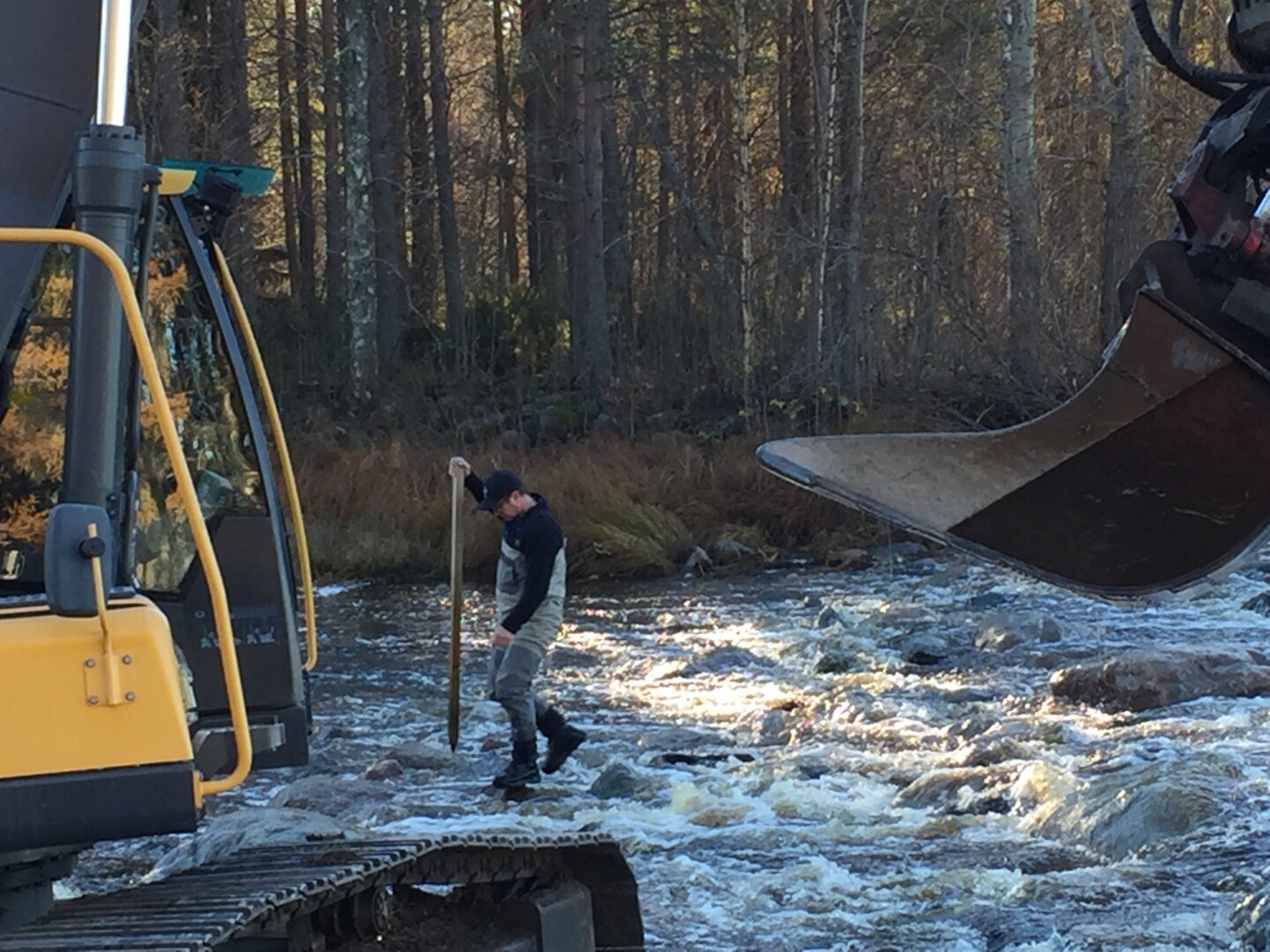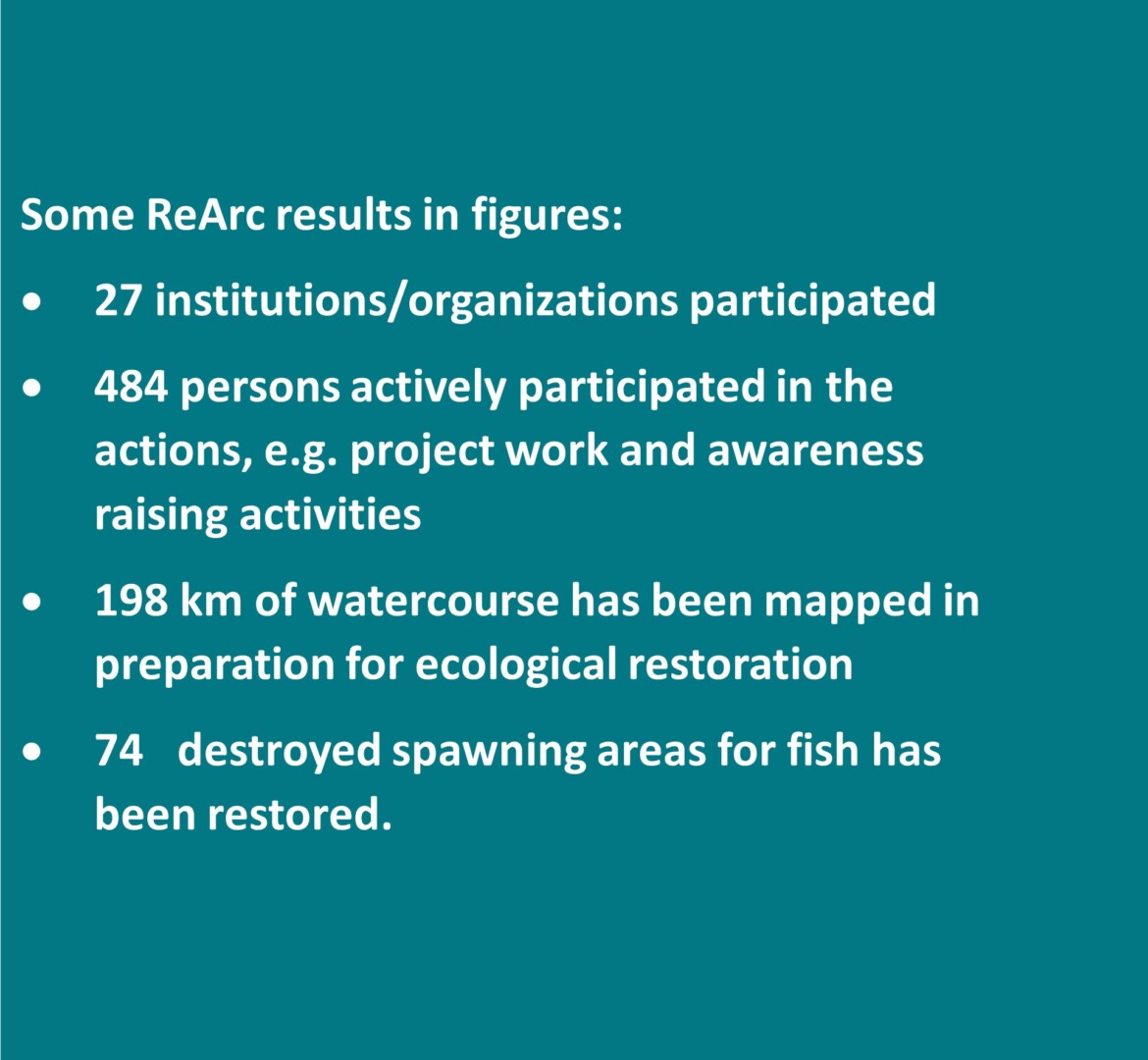Ecological restoration is being done in various parts of the world, where Man has earlier modified the water flow in rivers. Ecological Restoration of Arctic Rivers (ReArc) is the first time when Finland, Sweden, Russia and Norway cooperate in this. Cooperation is beneficial because many of the watercourses of the area are border-crossing, and they have similarities in terms of biotopes, vegetation, land types, animal species etc.
The project works for getting a number of arctic rivers back to their natural state. River flow has been channelized because of timber floating. Forests and agricultural land have been drained. Construction of a road or railway crossing a river may have meant a change in the water flow. This has in many cases led to migration barriers for many aquatic species, nutrients and heavy metals released from the ground to the river, and erosion of the ground.
All this has a negative effect on river biodiversity.

During the beginning phase, ReArc partners exchanged experiences in the topic, and synchronised the meanings of concepts, e.g. professional “glossaries” of the four countries. Then, the project actions have been on three levels:
- mapping of watercourses and need for restoration
- planning of restoration methods
- restoration actions of some selected migration barriers.
Implementation of ReArc has meant many occasions when biologists, ichthyologists, geographists, IT-technologists climb onto boats or walk along riversides to do the mapping. The work requires a professional look into biotopes and waterways. Also, it requires arranging field work professionals and e.g. excavators and their operators to go to the watercourse and to their job in a professional way. ReArc revealed a shortage of excavator operators specialised in restoration, and this inspired a micro-project ”EXcavator Pro in Ecologicial ResToration” (EXPERT) linkki
The project objective was to carry out actions leading to restoration of previously modified arctic rivers, and thus to increase the fulfillment of the environmental objectives in EU Water Framework Directive. In a broader perspective this will result in a greater potential for river ecosystems to adapt to climate change and contribute to the viability of the arctic nature resources, environment and economy.

Project: Ecological Restoration of Arctic Rivers (ReArc)
Lead partner: County Administrative Board of Norrbotten, Luleå
Other partners:
* Pechenga local public organization on ecological enlightenment “EcoCentre”, Nikel
* Metsähallitus, Parks and Wildlife Finland, Vantaa
* Centre for Economic Development, Transport and the Environment in Lapland, Rovaniemi
* Norwegian Water Resources and Energy Directorate, Narvik
